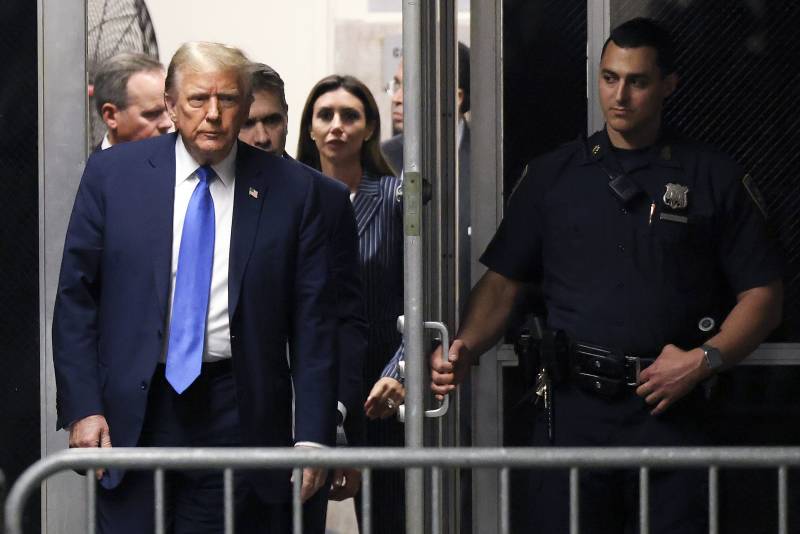The first criminal trial against Donald Trump got underway in New York Monday– a case where prosecutors say Trump engaged in a conspiracy to cover up a sex scandal with adult film star Stormy Daniels in order to get elected president in 2016.
The former president is facing dozens of felony charges and the possibility of prison time. The trial comes days before the U.S. Supreme Court considers the limits of presidential immunity as Trump also faces federal charges over his involvement in the Jan. 6 uprising at the U.S. Capitol and charges in another case over his handling of national security documents at his home in Florida.
Melissa Murray, a law professor at New York University and co-author of The Trump Indictments joins Scott to explain what’s at stake and what’s ahead for the Republican presidential nominee.
